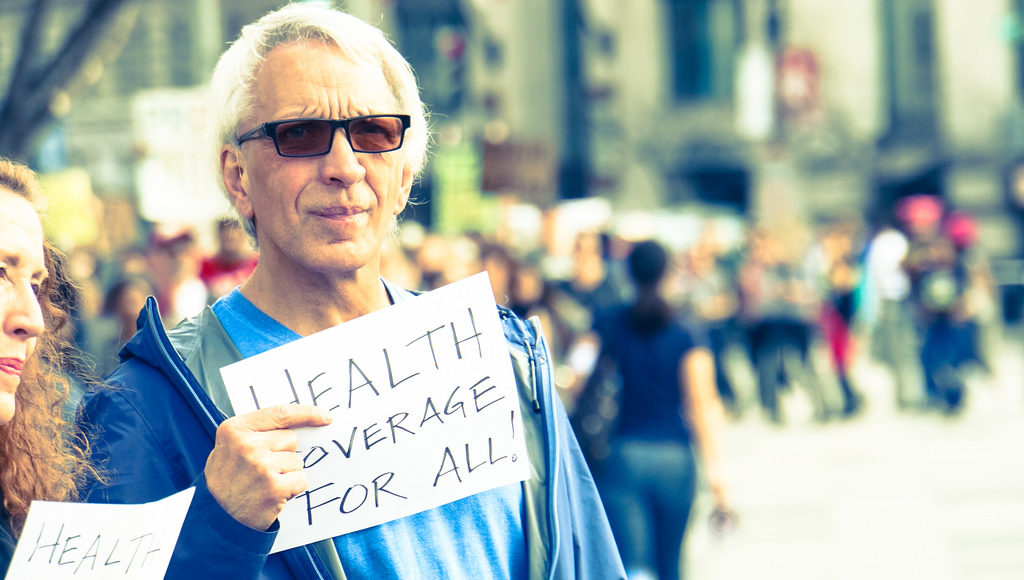Well, September has officially passed. The Republican attempt to repeal the Patient Protection and Affordable Care Act has officially sunsetted. Hallelujah.
…right?
My fleeting sigh of relief was almost immediately replaced with concern over the death-by-a-million-paper-cuts approach to ending affordable healthcare access, the latest being #45’s decision to eliminate health-care subsidies — not to mention continued Republican rhetoric to try again in, oh, I don’t know, maybe January or February.
My mother-in-law is in her last — who knows how long she has. And her remaining days, which could and should be carefree, are instead filled with anxiety about how her middle-aged daughter will afford health care. Not whether her daughter can afford pretty golden baubles. Not a house. Not a fancy car. Just the ability to visit a doctor as needed.

Vega’s wife, Mala, utilizing her health insurance.
In the scheme of things, we’re pretty lucky. We’re more or less healthy, we are not broke or in debt, we have a solid roof over our heads, clothes to wear, healthy food to eat. But we’re also constantly anxious about affordable health care being yanked away from us, maliciously and for no good reason.
I don’t know a single person who isn’t anxious about paying for health care. Even people who are employed full-time with a large employer who offers them a good medical plan — even they need to worry about what should happen if they get an affliction that incapacitates them beyond their short-term disability period. Even people who are downright affluent worry. A well-off friend has a child on the autism spectrum and worries to no end how he’ll be taken care of once she’s gone.
What is the logic of this intentionally-induced anxiety? Why do our families have to be caused continued stress by the continued yanking of our chains by those who were ostensibly elected to make our lives better? It’s not “just” the 22 million people whose health insurance will be snatched away if ACA is repealed. It’s pretty much every single person who isn’t a billionaire.
Besides, there is virtually no one in the healthcare industry who supports repeal. And if the entire healthcare industry is united in its opposition to potential new healthcare-related executive orders or legislation, surely there’s a lesson there for elected representatives?
You would think. But I am reminded that the context in which I’m concerned about the survival of the ACA is Charlottesville, where we debate whether people who dehumanize people of color are on the same moral plane as people who want to protect people of color from dehumanization. And Hurricane Harvey, and Irma, and Maria, where we debate whether our shared funds should be used to support fellow citizens who are drowning. And DACA, where we debate whether a promise that we as a nation made to American-raised children, a promise on which those children hinged their futures, was actually a lie.
Which brings me back to my point: if a (great, big, massive) law passed during one administration can’t endure through the next administration, what does that mean for consistency, ability to plan and make decisions, faith in our policies? How can the best in us, our inspired entrepreneurship, our expansive generosity, our untethered inventiveness, soar if we are made confused, small, and frightened by the ground being shifted beneath us on a daily basis?
If elected representatives are so hell-bent on overturning *every* *single* *piece* *of* *progress* that has ever been conceived, then how do we move forward? What will it take to turn the rare voice lighting a conservative path to universal healthcare into a chorus?
The opinions expressed in this article are those of the author and do not necessarily reflect those of the Diverse Elders Coalition.


